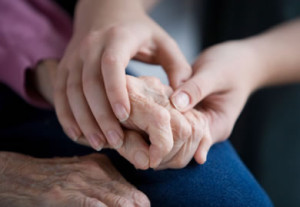 Your body repairs itself throughout your lifetime, but with each year the process becomes a little less efficient. The body gradually loses some of its ability to spring back from the wear and tear of daily living. Even healthy individuals who remain vigorous into their nineties may accumulate an assortment of annoying problems.
Your body repairs itself throughout your lifetime, but with each year the process becomes a little less efficient. The body gradually loses some of its ability to spring back from the wear and tear of daily living. Even healthy individuals who remain vigorous into their nineties may accumulate an assortment of annoying problems.
Though aging is unavoidable, you can take steps to maintain or improve your strength, flexibility, coordination: and energy no matter how old you are. Exercise and good nutrition can help. Regular therapeutic massage can also improve physical and mental well-being throughout your life.
Geriatric Massage differs by utilizing modifications of standard techniques that are especially suitable to the physical conditions in the older population. Athletes benefit from massage therapy for physical problems resulting from overexertion, injury and general wear and tear they incur in relatively short periods of time. Geriatrics benefit from massage therapy for the very same reasons, however they acquire their symptoms over a full lifetime of work and activities.
The benefits of massage and nurturing touch are becoming more accepted and recognized throughout the Medical and Health Communities. The benefits can appear on a physical level as well as emotional, psychological and social levels. Here is basic list of benefits Geriatric Massage may offer.
- Stress Relief and Relaxation
- Increased Circulation
- Improvement in Bodily Functions
- Skin Care
- Alleviating Depression
- Increased Self-Esteem
- Increased Mobility
- Pain Relief
- Memory Stimulation
- Increased Vitality
Many health problems common to the mature adult or geriatric client respond to appropriate massage techniques often better than to medication. In fact it is not uncommon that hands-on techniques are effective when the body no longer responds to medication.
Conditions that are most often responsive to massage therapy are as follows:
- High Blood Pressure
- Lymphedema
- Diabetic Neuropathy
- Stroke
- Peripheral Circulatory Disease
- Parkinson’s
- Multiple Sclerosis
- Alzheimer’s
- Sleep Disorders
- Emphysema
- Pre/Post Op
- Joint Replacement
- Amputation
- Arthritis
- Bursitis
- Tendonitis
Practical considerations
Communicating your needs. Tell your massage therapist why you are getting a massage. For example, you may want relief for sore feet or tight shoulders, or you may just want to relax.
Dress. Your massage therapist will normally leave the room while you undress. You will be covered warmly at all times except for the area being massaged. Tell your massage therapist if you prefer to leave some or all of your clothes on.
Getting on the table. If you wish, your massage therapist will help you get onto the table. Pillows or cushions may be used to help support you. If lying down is uncomfortable for you, most massage therapists can work with you seated in a chair.
Special concerns. Always tell your massage therapist whether the pressure being used is comfortable. Indicate if you do not want oil or lotion, or if you dislike scented lotion. Let your massage therapist know if you are hard of hearing. If you are too cold or hot, your therapist can adjust the heat or your covers.
After the massage
Before getting up from the table, give yourself a few minutes to reorient from a state of deep relaxation. If you wish, your massage therapist can stay and help you.
How long? The length of your sessions will depend on your general health and your reason for getting massage. For your first massage a half-hour or less may. be enough. With experience, you and your massage therapist can determine the best length for each visit.
How often? Frequency is usually more important than the length of each massage. With regular sessions you may begin to notice positive changes in how you feel between massages, and in how many aches and pains you do (or don’t) experience. Your massage therapist will help you set an appropriate schedule.
If you or anyone you know suffers from chronic pain and would like to attain a better quality of life, those in the Inland Empire region, please contact me today to book a session.
